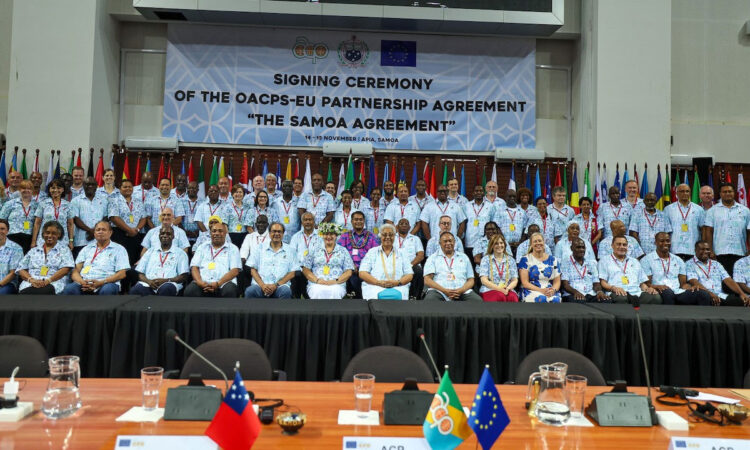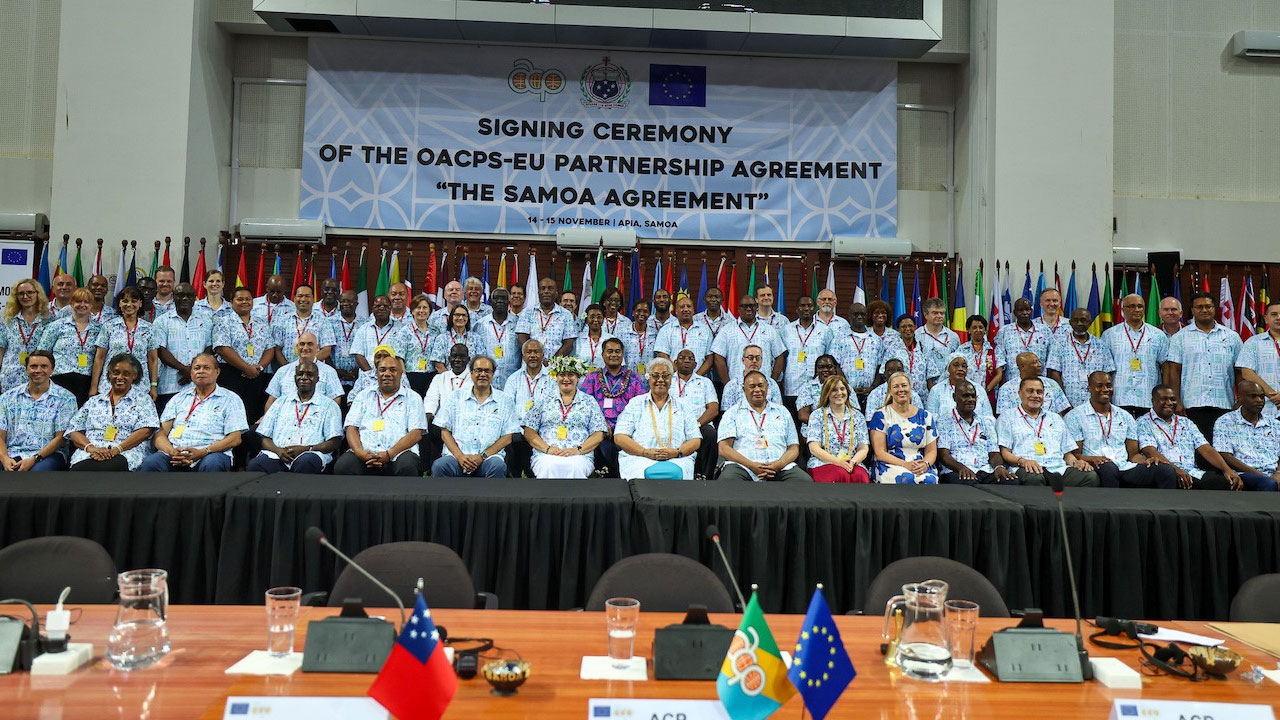

Securing funding from the European Union remains a persistent challenge for small island nations like Fiji.
This information came to light at the Pacific Islands Forum Leaders meeting in the Cook Islands, where the secretariat of the Organization for African Caribbean and Pacific States disclosed the ongoing challenge.
Despite this challenge, the recently signed Samoa Agreement in Apia saw the EU committing to a minimum of 650 million euros to support Pacific priorities in the region.
OACPS Secretary General George Rebelo Pinto Chikoti says the European Union’s efforts to support hydropower development in Fiji, fund feasibility studies for a deep-sea, multi-purpose port on Christmas Island for Kiribati, and rehabilitate the Port of Rabaul in Papua New Guinea are encountering uncertainty.
“Under EDF we did not have that problem, we knew that there was funding, but now we need to look at how do we address those specific interest of small island states, who can be with one cyclone, you can destroy the livelihoods of generally everyone.”
In the last five years, EU imports from Pacific ACP countries have increased from 1.3 to 2.3 billion euros.
Meanwhile, the Samoa Agreement includes specific Pacific-EU protocols to analyze and jointly implement Pacific priorities.
Pacific Islands Forum Chair Mark Brown says this renewed engagement has economic benefits for the region.
“I think countries that will rely on trade will get significant benefit. Some of our member countries are not big training countries, some of us are heavily reliant on tourism for our industries rather than trade. It will definitely benefit those countries that have very strong trade sectors.”
Prime Minister Sitiveni Rabuka says Fiji supported the Samoa Agreement since its negotiations in 2018.
“I think it’s going to benefit most. Fiji supported it, we were keen to continue the Pacific spirit in all our discussions and we acceded to the idea of the Samoa Agreement.”
The Samoa Agreement supersedes the 2000 Cotonou Agreement that the Pacific signed.
One major difference lies in the funding instrument, with the Samoa Agreement funded by the Neighborhood, Development, and International Cooperation Instrument—a global Europe fund that consolidates various forms of aid, making it less discriminatory than the European Defense Fund.






